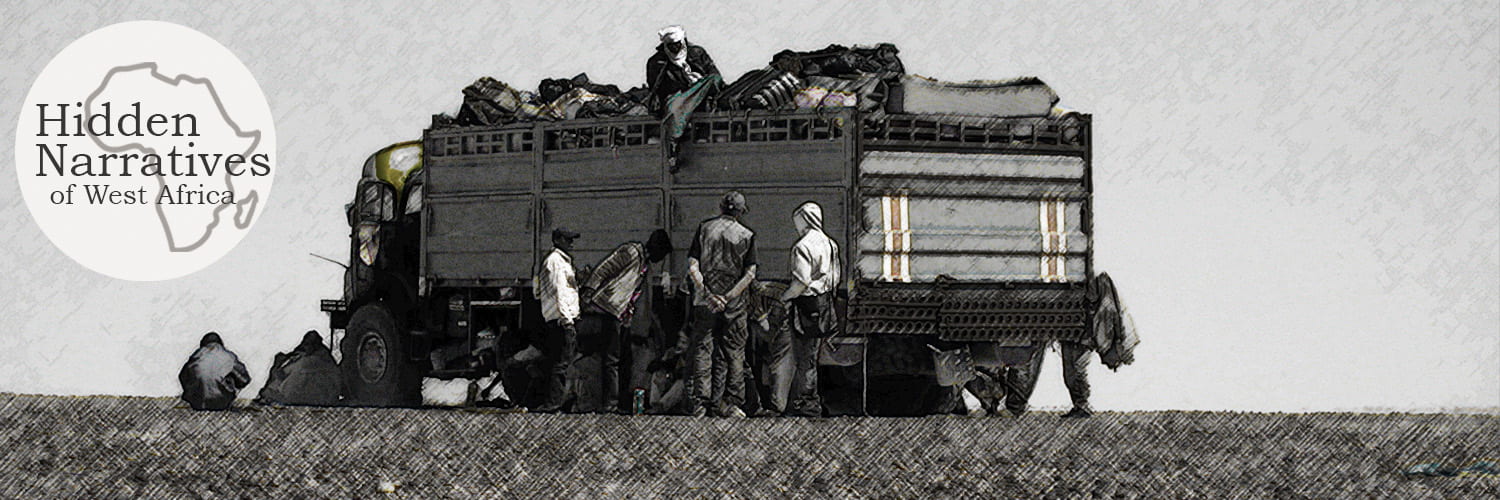Originally published by IFRA Nigeria -Institute of African Studies at the University of Ibadan, original article and outputs by participants are available here
As part of the research programme Hidden Narratives on Transnational Organised Crime in West Africa a research training programme was organised on the theme: “Challenges of Fieldwork: Data Collection in Sensitive Situations”. A six days masterclass took place at the Nigerian Academy of Letters, University of Ibadan from September 13th to 19th, 2021.
This masterclass was hosted by IFRA and coordinated by Dr Elodie Apard, Dr Ini Dele Adedeji, Dr Adam Higazi and Dr Precious Diagboya, who all have experienced challenging fieldwork in their research.
Prof. Saheed Aderinto, Dr Philippe Frowd , Dr Vincent Hiribarren, Dr Gernot Klantschnig and Dr Cyrielle Maingraud-Martinaud were invited as guest speakers.
Eight participants were selected (among an impressive cohort of candidates): Adegbenle Semiu, Aliyu Rilwan Abdullahi, Aremu Lateef Olalekan, Mahmoud Yusuf, Musbahu Ismail, Njoku Chukwudi Gbadebo, Ogbebor Ejemen, Ogundairo Abosede Janet. All of them are currently conducting research – as part of a Master or a PhD – that involves risky, sensitive and/or morally challenging fieldwork.
“Sensitive topics” or “sensitive locations” imply a situation in which the researcher has to be especially cautious and well-prepared. This may entail risks for the researcher and the studied populations, because of a dangerous or volatile environment and/or existing social/cultural taboos related to the research topic.
Sensitive fieldwork may include research with participants who face particular vulnerabilities and should be approached with particular care and consideration. This can vary from engaging with participants who have a mental health condition, to those with a precarious legal status, or those engaged in criminal activity. Serious ethical challenges are also often part of this type of research.
The masterclass was conceived as a week of research training through research practice and a time for the researchers to gain distance from their field and engage themselves in a reflexive process. Alternating between theoretical and practical fieldwork sessions, participants and coordinators addressed collectively and individually the following questions: How to position oneself in a sensitive field? What are the consequences of the researcher’s positionality on the production of data? What are the methodological challenges in sensitive situations and how to overcome them?
The group was divided in 2 research teams who conducted fieldwork on the following topics:
- Sexual Harassment Policies on the University of Ibadan campus
- Cattle trade and inter-community relationships in Akinyele Cattle Market (Ibadan).
These practical sessions aimed to confront participants with their positionality in a new field, and ultimately fostering reflexivity on their own research.
The risky, sensitive and/or “morally challenging” fieldwork/topics all participants were engaged in raised many methodological but also ethical questions.
At the end of the week, participants and coordinators were asked to write a short individual paper summarizing their reflexive approach towards their own work. Copies of these peices can be found here.
Using the model of a well-known Belgian-Congolese research collaboration (Bukavu Series), longer versions of these 12 papers will be edited and published on IFRA’s website as a tool for further reflection within academia in dealing with sensitive situations.
See IFRA’s TNOC site for the outputs from this Masterclass.



